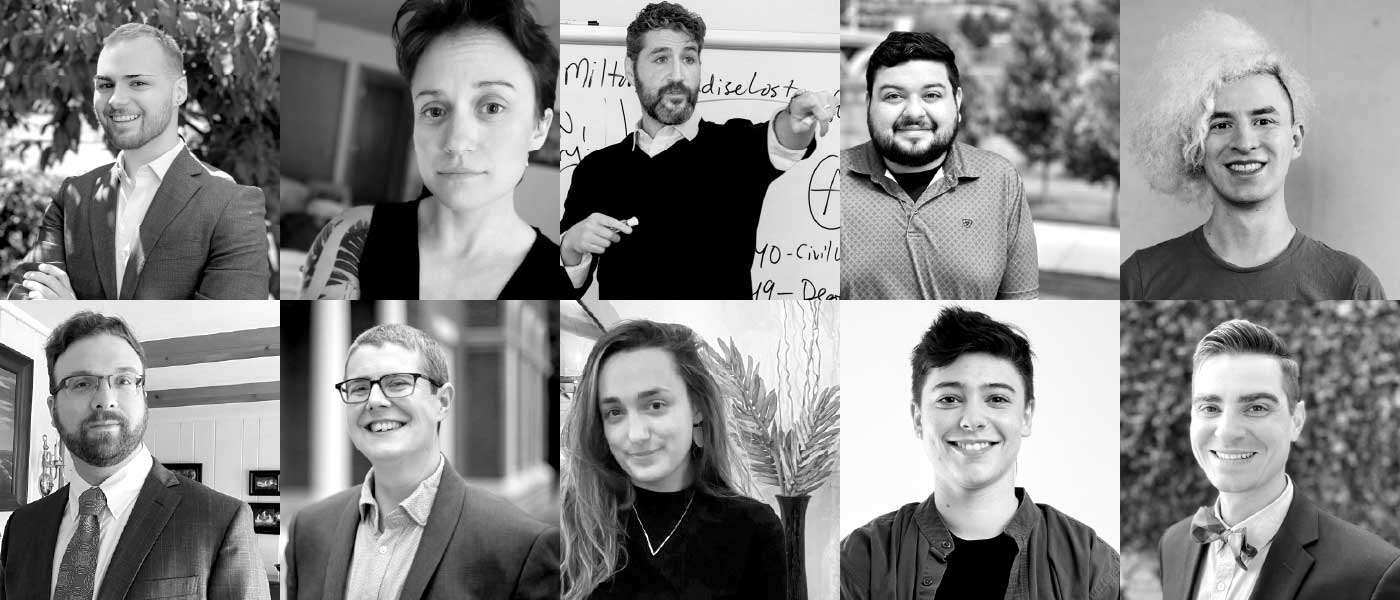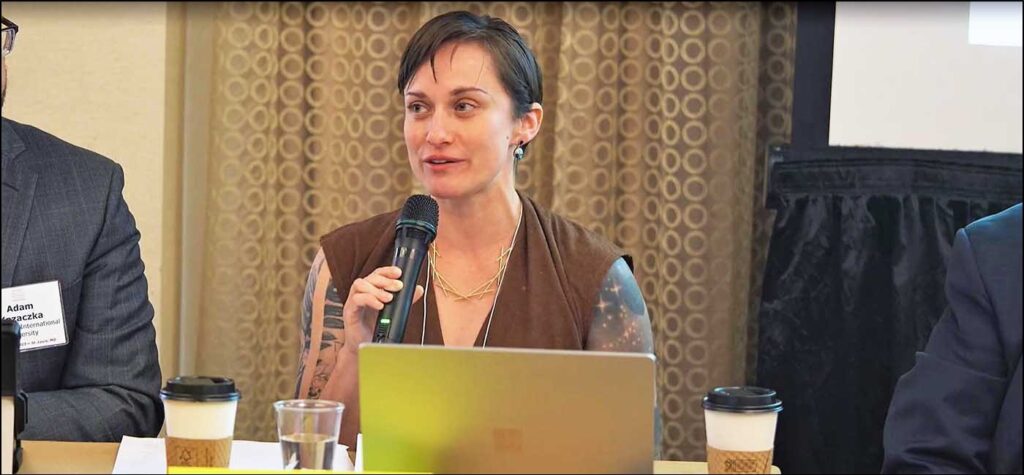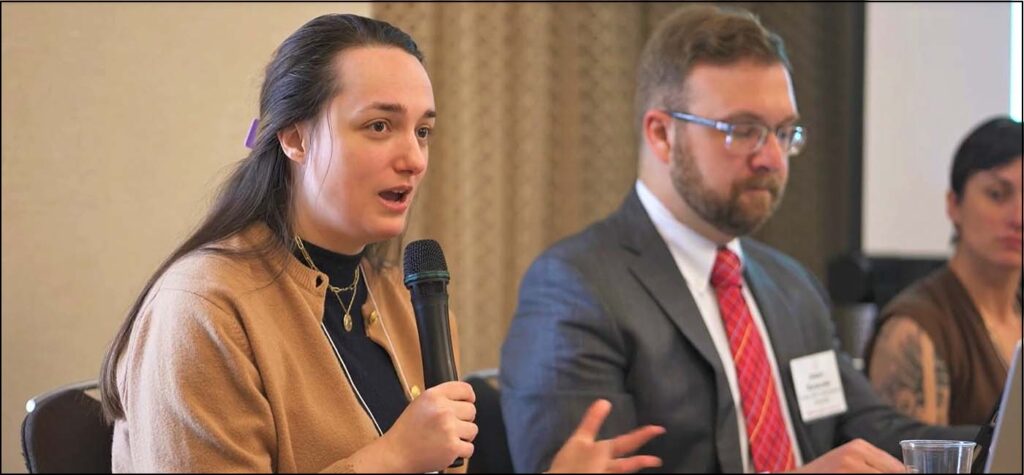| By Gale Staff |
With powerful data mining and visualization potential, digital humanities (DH) is expanding opportunities for enhanced research, teaching, and learning. Explore how three researchers—with varying degrees of experience using DH tools—developed new skills and made unexpected discoveries exploring the possibilities of DH.
In 2022, Gale partnered with the American Society for Eighteenth-Century Studies (ASECS) and the Committee on LGBT History (CLGBTH) to award fellowships to 10 researchers. Each fellow received six months’ access to Gale Digital Scholar Lab (the Lab) and a relevant Gale Primary Sources archive: Eighteenth Century Collections Online (ECCO) for Gale-ASECS fellows and Archives of Sexuality and Gender for Gale-CLGBTH fellows. After the fellowships, each scholar completed a case study to reflect on how these DH tools impacted their research experiences. In addition to helping fellows develop new skills, the tools saved countless hours, shed light on new research questions and sparked ideas for using DH in the classroom.
Read on to follow the DH journeys of three of these fellows—one each at an introductory, intermediate, and advanced level of experience using DH methods—to find ideas for expanding the boundaries of DH on your campus. (To read full case studies, click here!)
Introductory User: A Fresh Journey into DH
Elio Colavito
Doctoral Student, History, University of Toronto
Gale-CLGBTH Non-Residential Fellowship
Built-in learning centers with training tools in Gale Digital Scholar Lab make it easier than ever for new users to get started with DH.
Although Elio Colavito had previously used Archives of Sexuality and Gender in their research, they had never experienced the text- and data-mining capabilities of the Lab. The Gale-CLGBTH fellowship gave Colavito the access and training they needed to quickly and efficiently trace the history of trans-masculine community building over time to support their dissertation. Robust search and organization capabilities enabled them to save hundreds of hours, freeing time to analyze trends in the data, like the utility of visibility-focused trans writing.
At the end of the fellowship, Colavito remarked that working in the Lab advanced their skills and empowered them to implement DH methods in both future research and teaching undergraduate students.
“The Gale fellowship advanced my understanding of digital humanities research methods by introducing me to new data sorting and management tools.” —Elio Colavito
Intermediate User: Discovering New Research Pathways
Heather Heckman-McKenna
Doctoral Candidate, English, University of Missouri
Gale-ASECS Non-Residential Fellowship
DH tools help researchers save countless hours finding and analyzing data with powerful search and organization tools. Just prior to the Gale-ASECS fellowship, Heather Heckman-McKenna’s research journey involved manually searching ECCO and creating a handmade database. The Lab enabled her to streamline her close reading exponentially by quickly gathering large amounts of data to support her research on women writers of the eighteenth century.
“In effectively one fell swoop, the Lab allowed me to instantaneously access and download data that would likely have taken me years to build by hand.” —Heather Heckman-McKenna
Heckman-McKenna sought to show how women writers used feminine actions such as sighing, trembling, and fainting to create disruption as a literary response to systemic oppression. In addition to efficiently compiling a robust corpus of data with the Lab, Heckman-McKenna learned to use DH tools like ngrams and proximity searches that helped her discover new research pathways and identify themes in her data.
The database Heckman-McKenna created during the Gale-ASECS fellowship will fuel her future sensibility research, allowing her to make new breakthroughs even outside of the Lab. Following the fellowship, Heckman-McKenna noted she now has the insight to help fellow researchers build their own datasets—and help her students discover new ways of studying literature with DH methods.
Advanced User: Overcoming Challenges with DH Tools
Sarah Weston
Doctoral Candidate, English, Yale University
Gale-ASECS Non-Residential Fellowship
Even advanced users can discover new ways to find and analyze information more efficiently with DH tools.
Sarah Weston’s project, “The Shape of Numbers,” examines eighteenth-century poetry and art through the lens of mathematics. Her goal is to analyze number terms to understand the change of sensibilities that took place at the end of the eighteenth century, from the Enlightenment to Romanticism.
The Build, Clean, and Analyze research framework in the Lab gave Weston a clear process to find the data she needed and overcome challenges in data organization with DH methods. For example, Weston realized she could use named entity recognition to search for number terms instead of people and places, allowing her to discover a wealth of quantitative data to confirm her hypotheses.
Although Weston had previously used DH tools, the Gale-ASECS fellowship helped her learn methods to save time finding and cleaning data, discover gaps in her research, and develop new skills using analysis features. At the end of the fellowship, Weston remarked she’s excited to explore further DH pathways in her research and introduce DH methods to her undergraduate students.
“I felt confident exploring these tools for my own research and feel comfortable, now—especially having spent so much time using these tools for my own project—taking these into the classroom and encouraging my future students to embark upon their own analyses using them.” —Sarah Weston
Interested in diving deeper into each of these DH journeys? Download detailed case studies showcasing the fellowship experiences of Colavito, Heckman-McKenna, and Weston.
You’ll discover unique insights into using DH tools and methods at every experience level—and ideas to make DH more approachable to researchers and learners on your campus.





